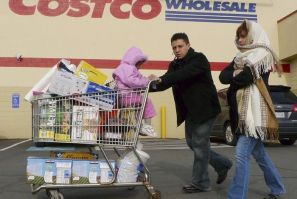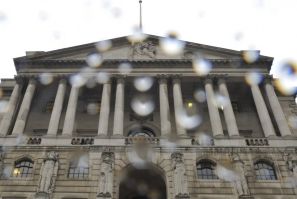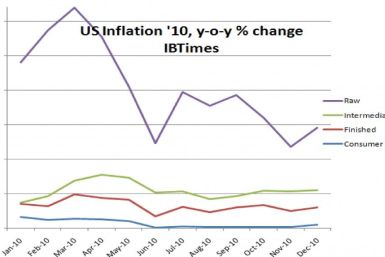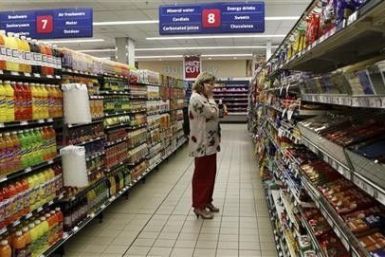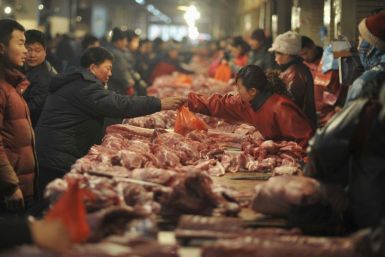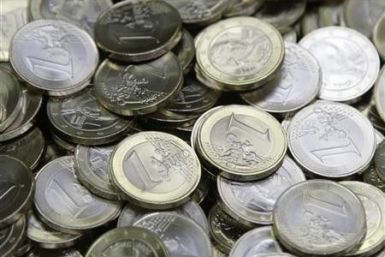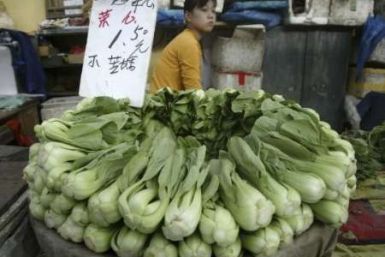Consumer prices in Britain rose in January, mainly led by an increase in value added tax (VAT) and rising crude oil prices.
China’s consumer inflation rose less than expected in January, as food prices continued to rise.
Gold rose above $1,360 an ounce on Monday on fears that Egypt's unrest could spread across the Arab world, while silver gained 2 percent on strong industrial demand driven by signs of an improving economy.
Gold rose above $1,360 an ounce on Monday as the dollar's retreat from highs versus the euro took some pressure off prices, with a second consecutive weekly price rise underpinning investors' confidence in the metal.
As earnings season gets underway early in 2011, investors should perhaps look at the profit margins of producers, especially those who need to buy raw materials to make their products.
Consumer prices in Germany fell more than estimated in January, as demand declined due to seasonal factors.
The World Bank and International Monetary Fund are warning poor regions that have so far not been hit by rising food prices, like sub-Saharan Africa and the Caribbean, to get ready to face them.
Analysts have estimated that China’s consumer price index (CPI) went past 5 percent in January on annual basis, Securities Daily reported on Thursday.
UK unemployment rate is expected to peak this year and will remain stubbornly high during 2012, the Confederation of British Industry (CBI) said on Wednesday.
China is expected to see another interest rate hike within a month as the government intensifies its efforts to control the rising inflation, The New York Times reported on Wednesday citing a forecast of economists and bankers.
Inflation in the eurozone rose to 2.4 percent in January from 2.2. percent in December, according to the preliminary estimates of Eurostat, European Union's official statistics agency.
Japan's core consumer prices fell in December from a year earlier for a 22nd consecutive month, as slow wage growth and sluggish demand kept the country mired in deflation while the government grapples with heavy public debt.
China's annual economic growth is expected to ease to about 9 percent in the first quarter while consumer inflation is projected at 5 percent, according to a government think tank report published in the official Chinese Securities Journal on Thursday.
Overall food prices in the U.S. are going to inch up between 2 and 3 percent this year, putting an added burden on household budgets.
China’s economy is estimated to grow at 9.8 percent in 2011, with inflation likely to reach 3.7 percent.
Chinese media praised President Hu Jintao's visit to the United States on Friday as a diplomatic masterstroke in easing tensions, but reports largely ignored thornier questions of currency and human rights.
Close on the heels of a China central bank adviser hinting at an imminent rate hike, a state-controlled newspaper has said more rate hike is on the cards, probably as early as in February, confirming the dominant view that Beijing will pull out all the stops to address what is becoming a serious political problem.
Consumer prices rose a lower than expected 0.9 percent in Morocco in 2010, with gains in food prices offset by lower communications costs, the state planning and statistics authority (HCP) said on Thursday.
China's economy recorded a 10.3 percent growth in 2010, coming back strongly from the global crisis, data released by the National Bureau of Statistics on Thursday showed.
China's consumer price index (CPI) dipped to 4.6 percent in the last year, according to a report by Hong Kong-based Phoenix TV, BBC reported.
Gilts and short sterling futures slid on Tuesday after data showed UK consumer price inflation rose faster than forecast in December, fuelling concerns the Bank of England may be forced to raise interest rates sooner than expected.
Investors remain preoccupied by the threat of further monetary tightening in China, writes Marc Ground at Standard Bank in London today. This is weighing on precious metal prices, encouraged further by a stronger Dollar off the back of lingering Eurozone debt concerns.






